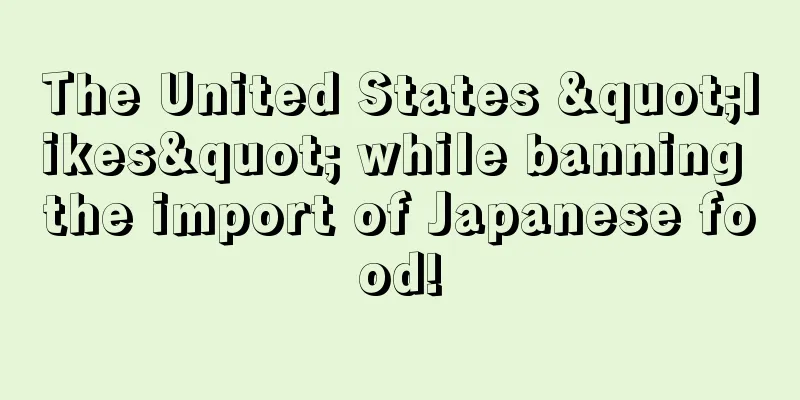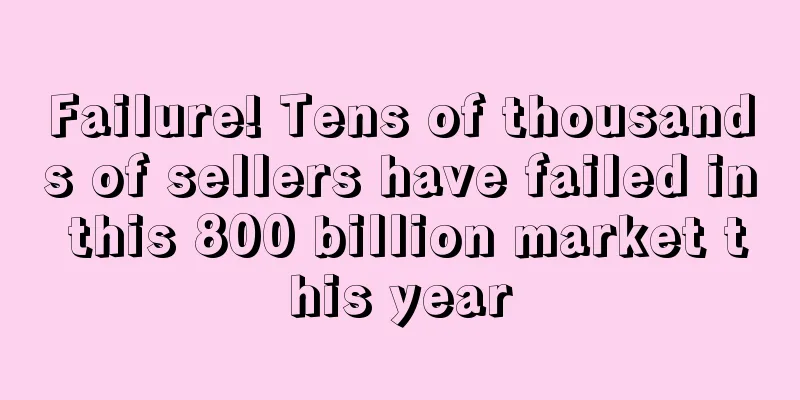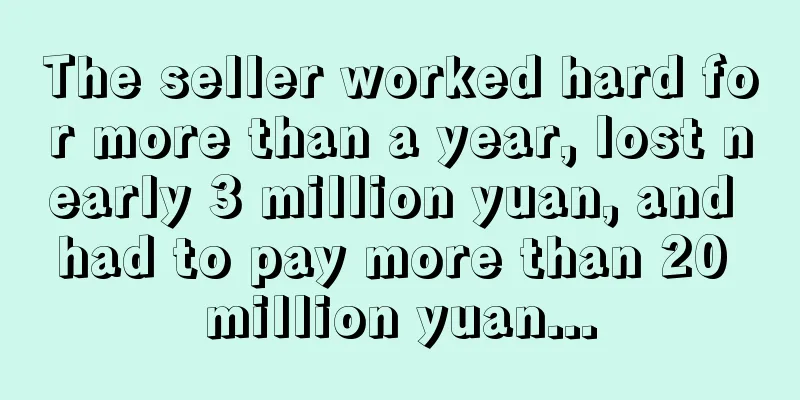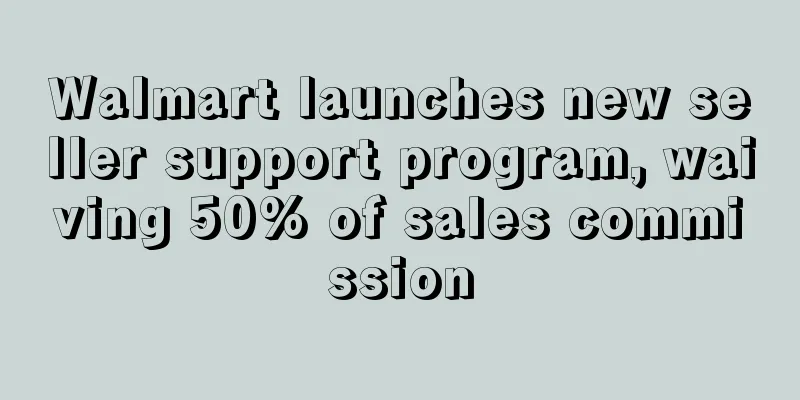The United States "likes" while banning the import of Japanese food!

|
Recently, Japan announced that it would officially discharge the nuclear wastewater stored in the Fukushima Daiichi Nuclear Power Plant of Tokyo Electric Power Company into the sea. This decision caused an uproar around the world as soon as it was announced.
China, Russia, South Korea and other countries have expressed resolute opposition and serious concern about the Japanese government's decision. Japan's move seriously violates international maritime law, seriously damages the marine environment, and even threatens the safety of people in the Asia-Pacific region.
However, the United States openly "liked" Japan's move and supported Japan's discharge of sewage into the sea. As Japan's "good brother", the United States is supporting its brother. The U.S. State Department issued a statement expressing support for the Japanese government's decision to discharge sewage into the sea, and U.S. Secretary of State Blinken even openly "thanked" Japan on social media.
This operation is really puzzling. Previous signs have shown that the nuclear pollution in Fukushima, Japan may have spread to North America. But this time the United States openly supports Japan's discharge of sewage into the sea. What is its intention?
But the fake brotherhood came too fast. While the United States was very "loyal" in supporting Japan, it had already begun to ban the import of Japanese food. On the afternoon of the 14th, a topic on Weibo about #US bans Japanese food from entering# became the number one hot search.
According to the previously updated Import Alert No. 99-33 by the U.S. Food and Drug Administration ( FDA), a series of Japanese foods that had not been tested for radioactive nuclear contamination were seized, including fresh milk, butter, milk powder, vegetables and their products, rice, fish, meat and poultry, clams, sea urchins, etc.
Many netizens said: "They are good brothers in public, but stab each other in the back." The United States is the first to support and ban the import of Japanese food. This move really stunned the editor. It seems that the United States is still very worried about the impact of Japan's discharge of radioactive substances into the sea on food. And it has taken the lead in taking action.
So, what are the dangers of Japan's discharge of radioactive wastewater into the Pacific Ocean? According to statistics from Tokyo Electric Power Company, the nuclear wastewater contains 62 types of radioactive nuclides , not just tritium.
Calculations by a German marine science research institute show that due to factors such as ocean currents, magnitude, and migratory fish, radioactive materials will spread to most of the Pacific Ocean within 57 days from the date of discharge. Then, the United States and Canada will be affected by nuclear contamination three years later.
In addition, according to relevant media reports, Canada has detected cesium 134 radioactive elements in salmon on its west coast. In the waters of Hawaii, the level of radioactive substances detected has reached twice the previous level.
However, regarding the hazards of radioactive wastewater, a Japanese official previously said: "It's okay to drink the water." In response to this, many netizens complained: "Why don't you drink it first?"
In short, Japan's decision to discharge sewage into the sea is a disregard for human safety and the global environment. It is still unknown what serious consequences will occur in the future after the sewage is discharged into the sea. USA import Japan |
<<: Another one! Shenzhen's best-selling Qian'an Technology plans to list on the A-share market
>>: Entering Southeast Asia! Korean e-commerce giant Coupang opens Singapore site
Recommend
AliExpress' "Super Explosion Day" is officially launched, helping merchants to mass-produce products with daily sales exceeding 10,000
Merchants, please take note! AliExpress’ “Super E...
Two Sessions Proposal: Let the tax reduction policy benefit cross-border e-commerce
In recent years, China's cross-border e-comme...
What is Haimaohui? Haimaohui Review, Features
The Overseas Trade Federation (FTF) is a cross-bo...
What is Wehkamp? Wehkamp Review, Features
W ehkamp is a comprehensive shopping platform lau...
Crazy killing? The trend of association is still continuing, and the seller's appeal fee starts at 25,000!
Accounts were linked, and a wave of account closu...
What is Dollead? Dollead Review, Features
Dollead has rich customer service experience, pro...
Did U.S. holiday online sales falter? MasterCard says sales surged 60%!
This year's holiday sales are still growing. ...
What is MGA Entertainment? MGA Entertainment Review, Features
Founded in 1979, MGA Entertainment has a strong r...
Online clothing sales in the UK set to surpass in-store sales
Next year, online sales in the UK clothing indust...
More than 4,000 pieces sold, another children's product was recalled!
Toys can kill time and help develop intelligence....
“Black Friday” is coming, Cainiao’s first-leg import “sale in transit” supply chain solution is here
"Thanks to the in-transit sales feature, my ...
Brazil's decision to reduce import taxes on computers and mobile phones to 14.4% will take effect tomorrow
According to the comexdobrasil website on March 1...
Monthly sales of 13,000 units, searches soared 4,450%: These products are becoming popular in the United States
As the epidemic situation eases, many Americans h...
What is Desu E-commerce Logistics (Guangzhou) Co., Ltd.? Desu E-commerce Logistics (Guangzhou) Co., Ltd. Review, Features
Desu E-commerce Logistics (Guangzhou) Co., Ltd. is...









